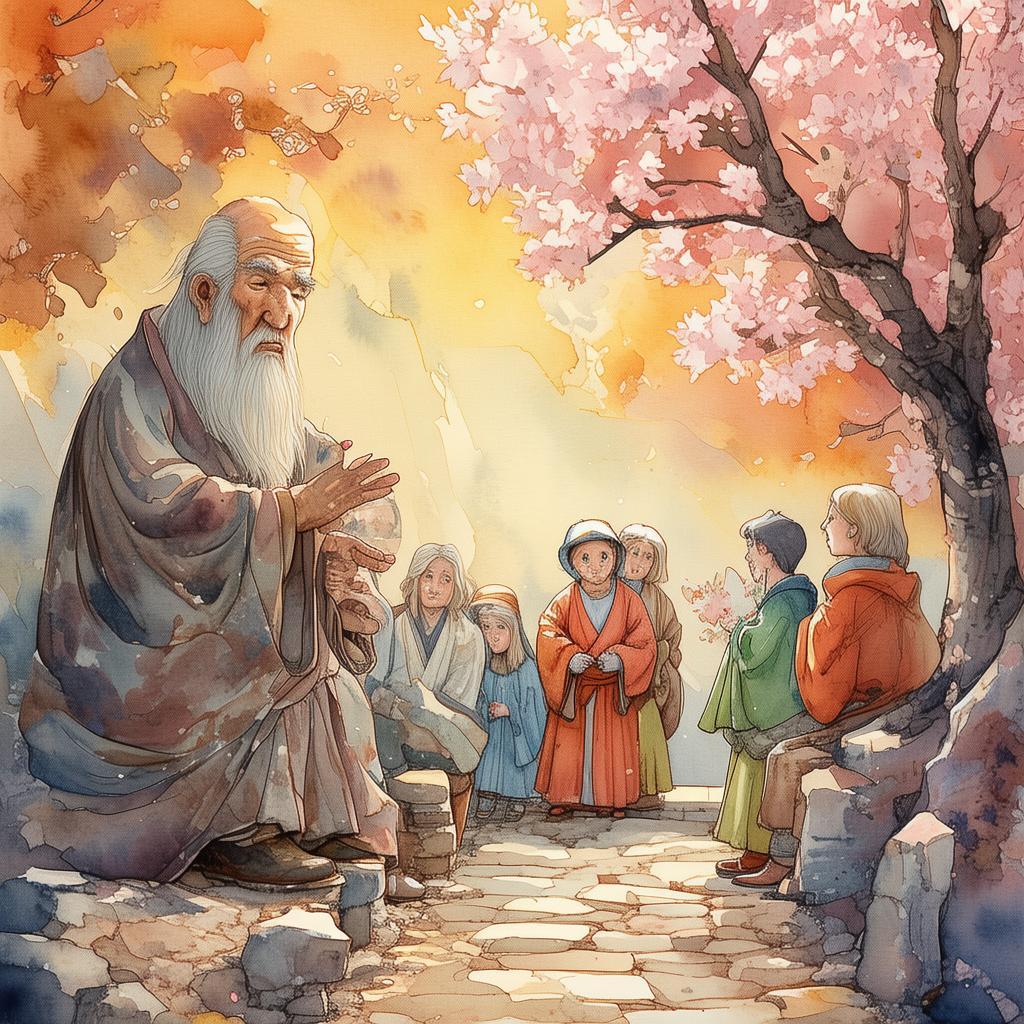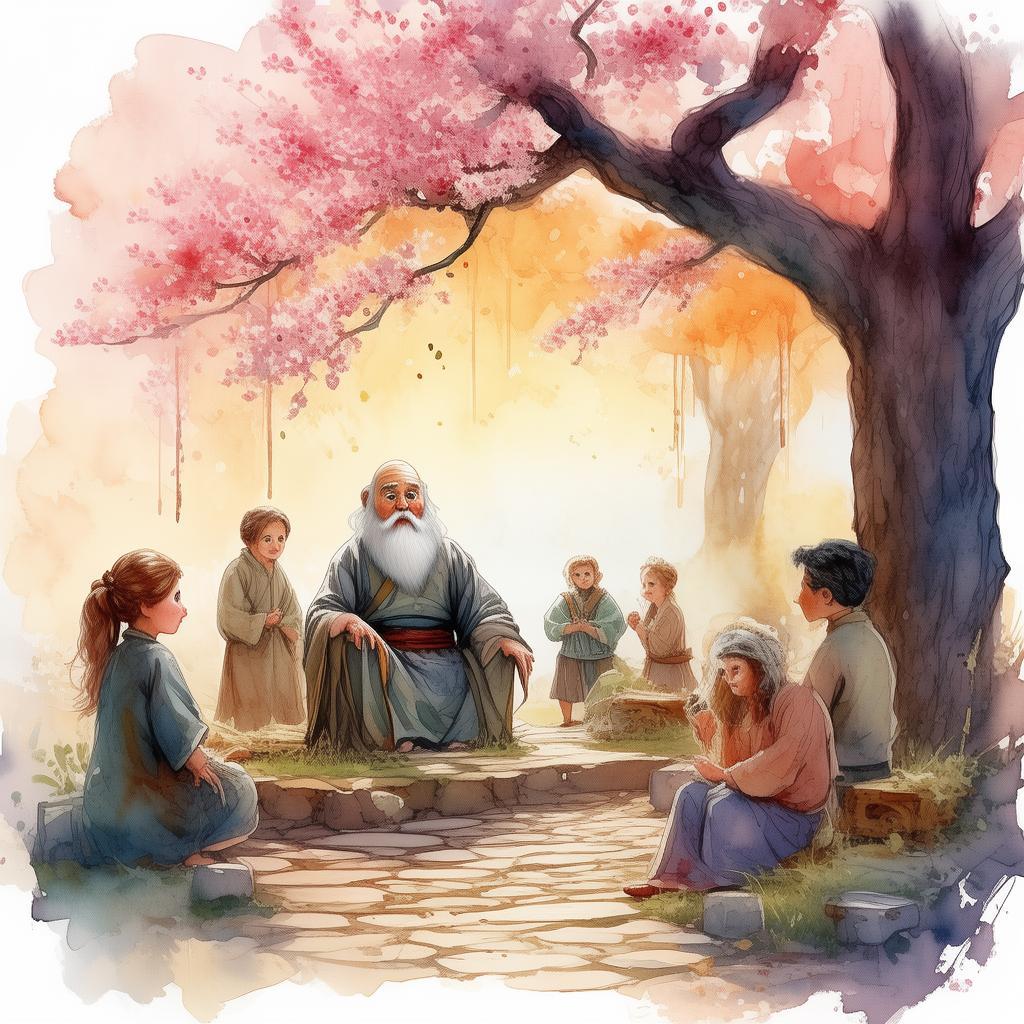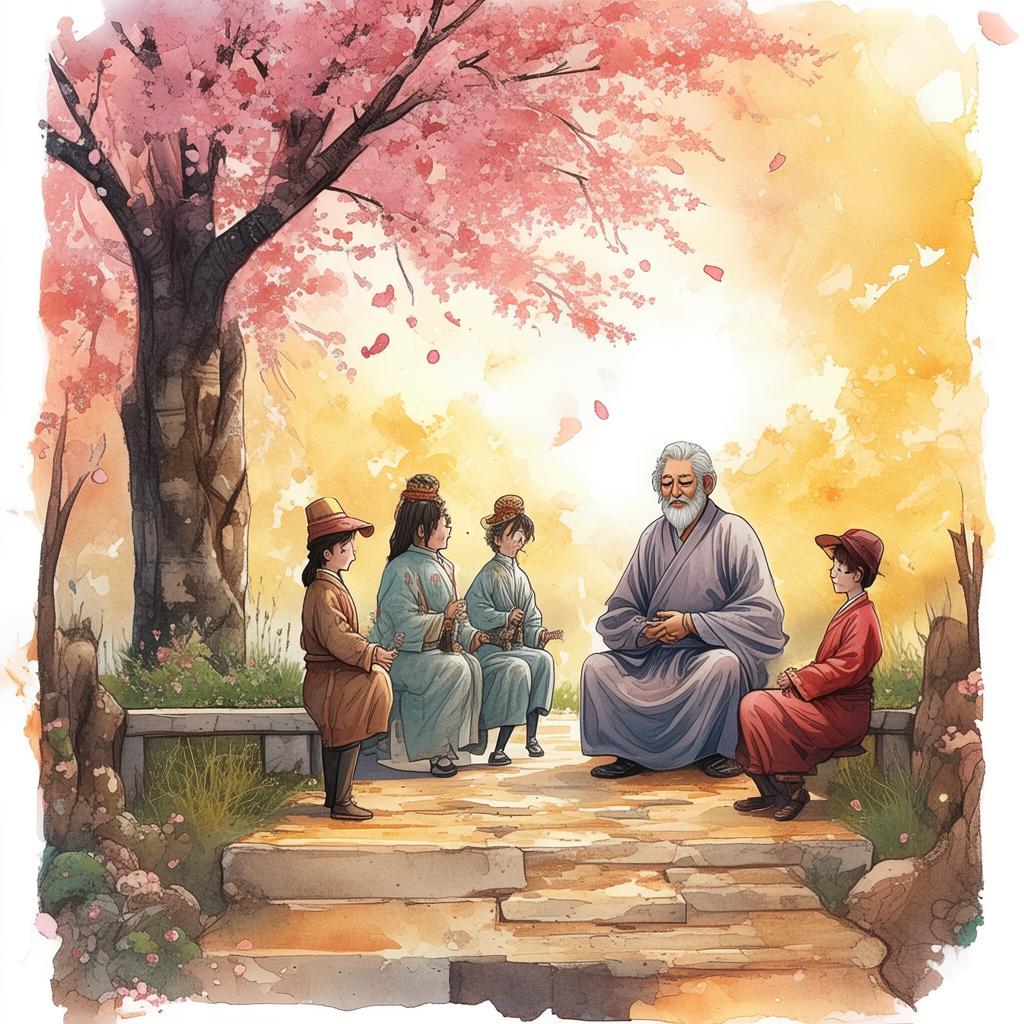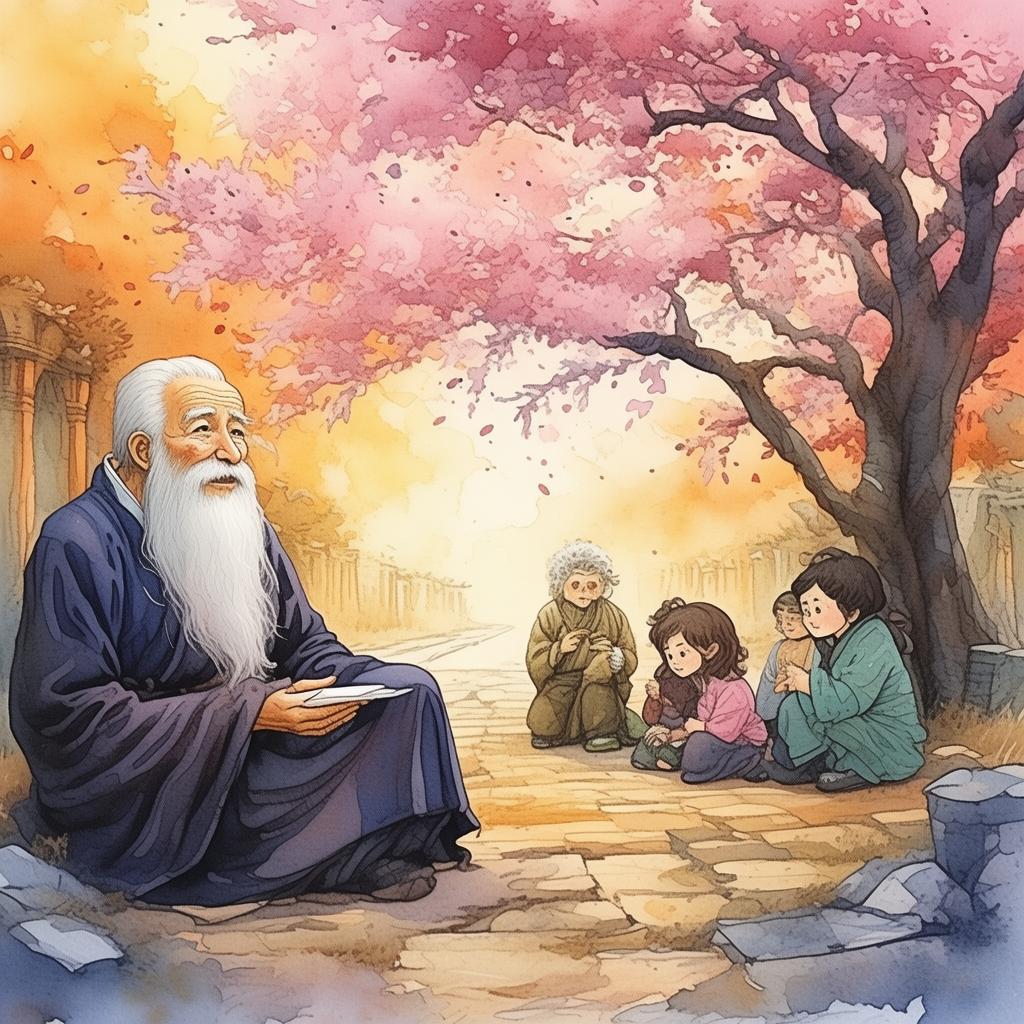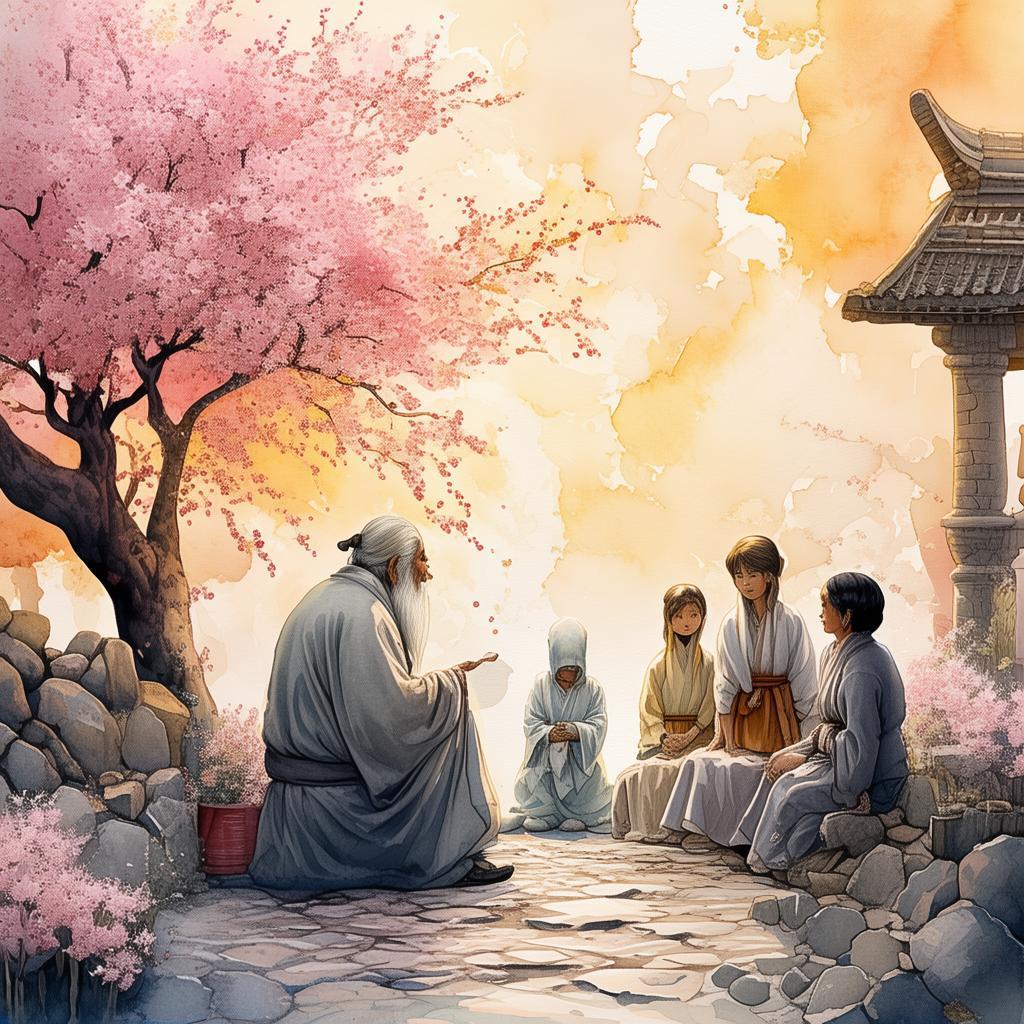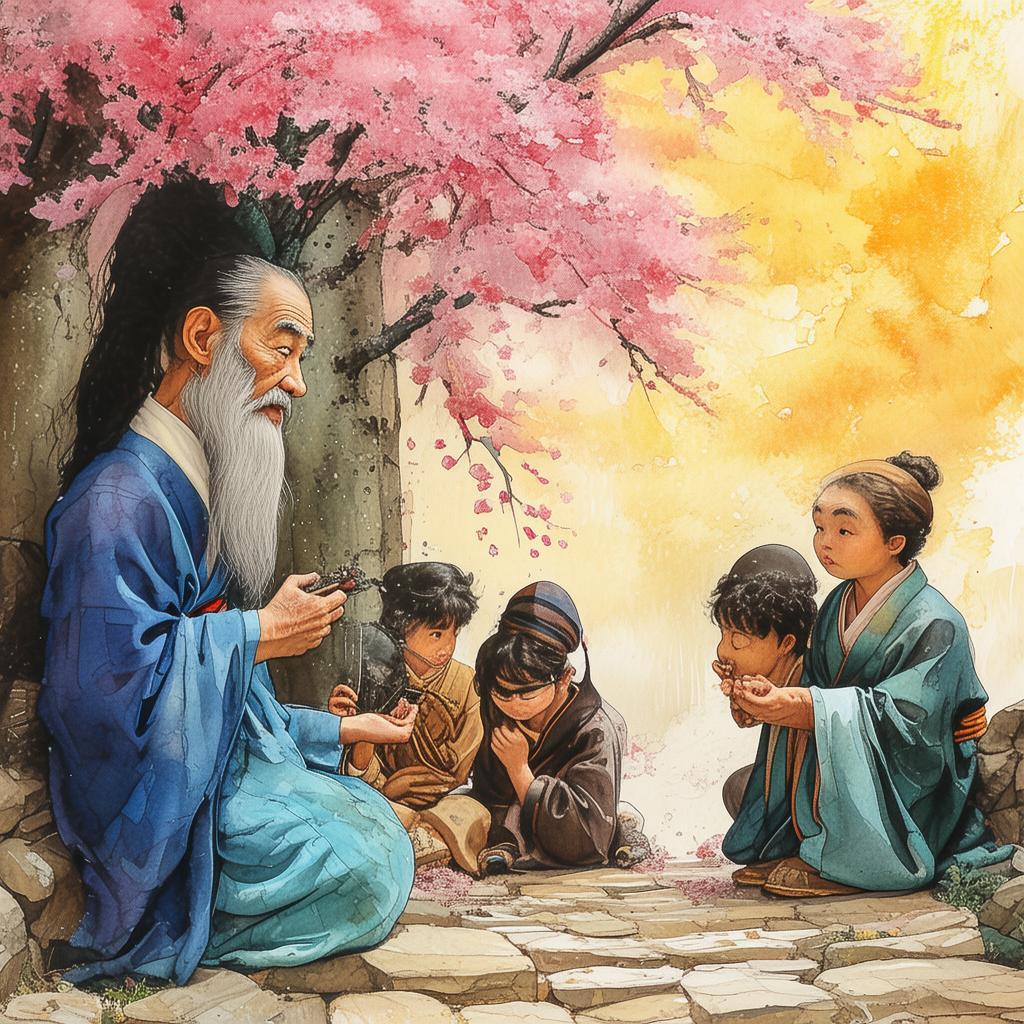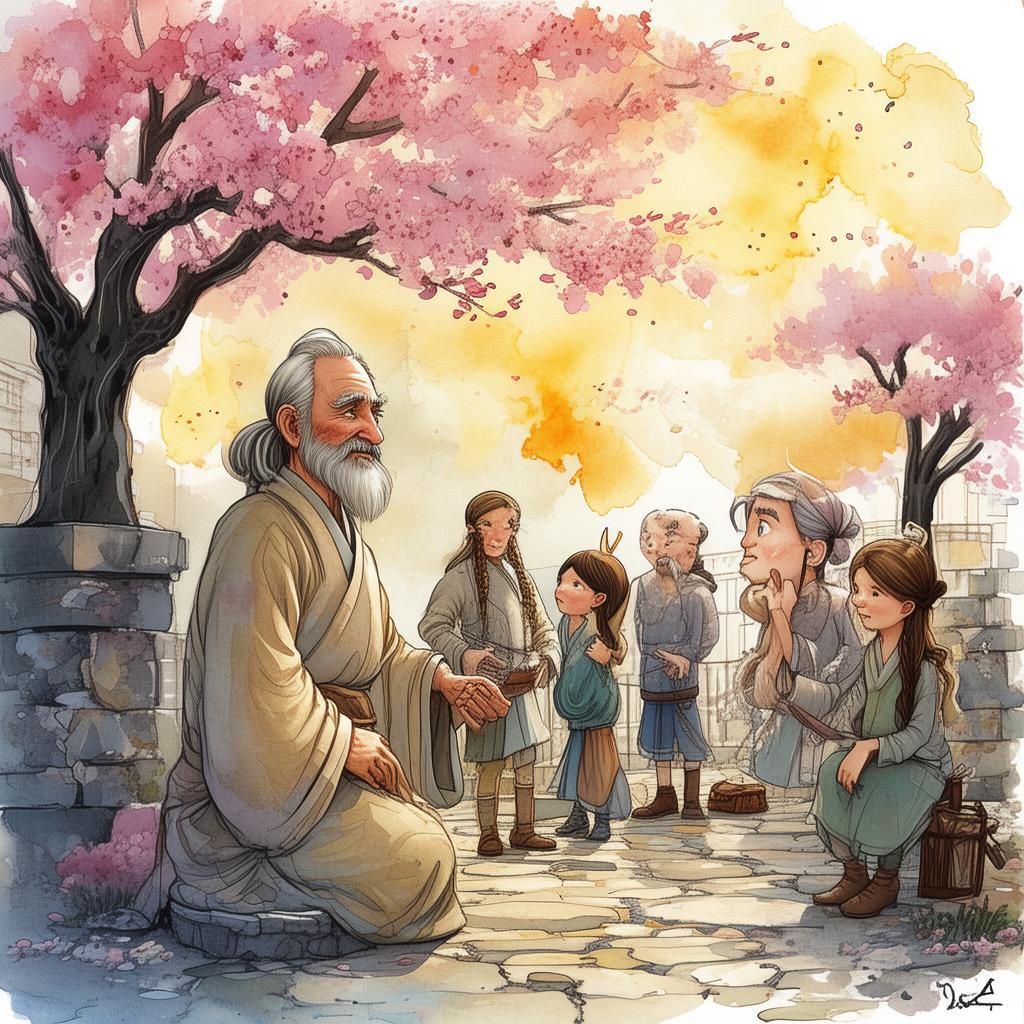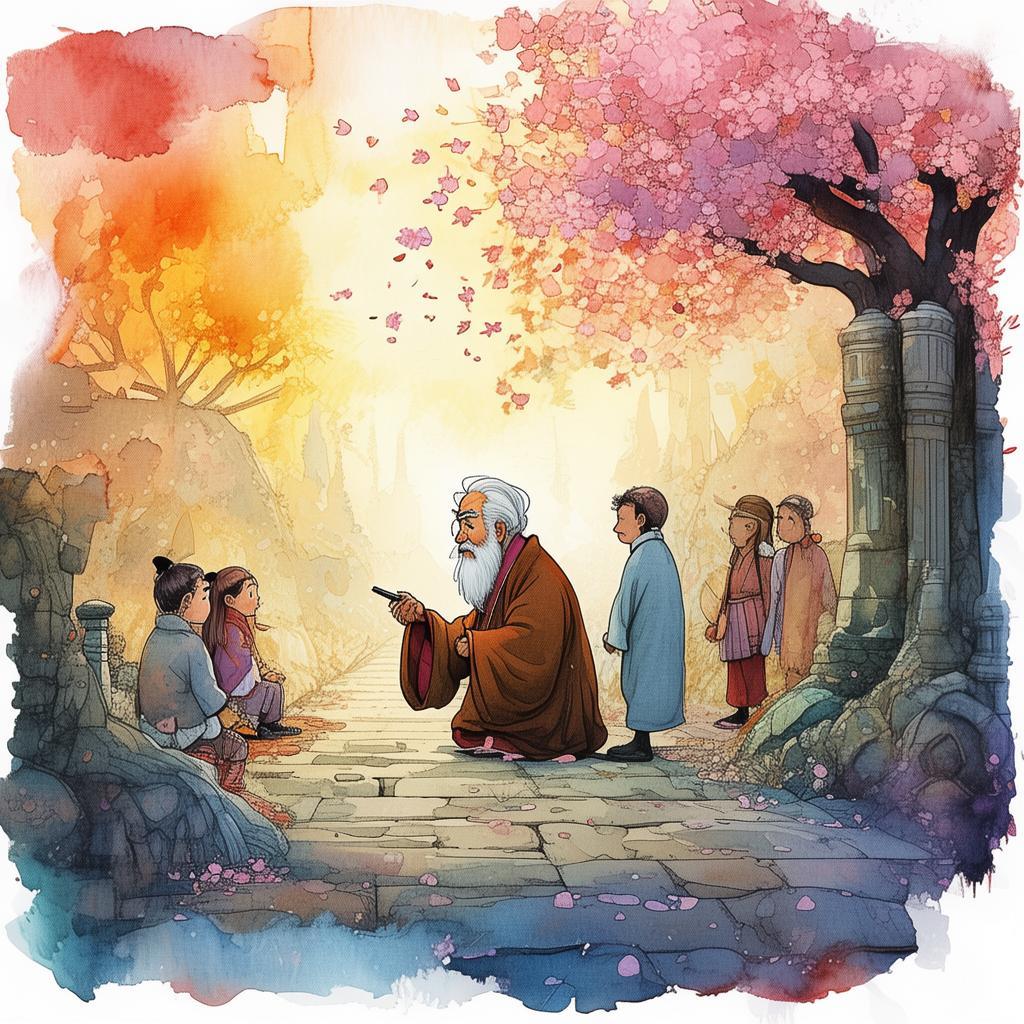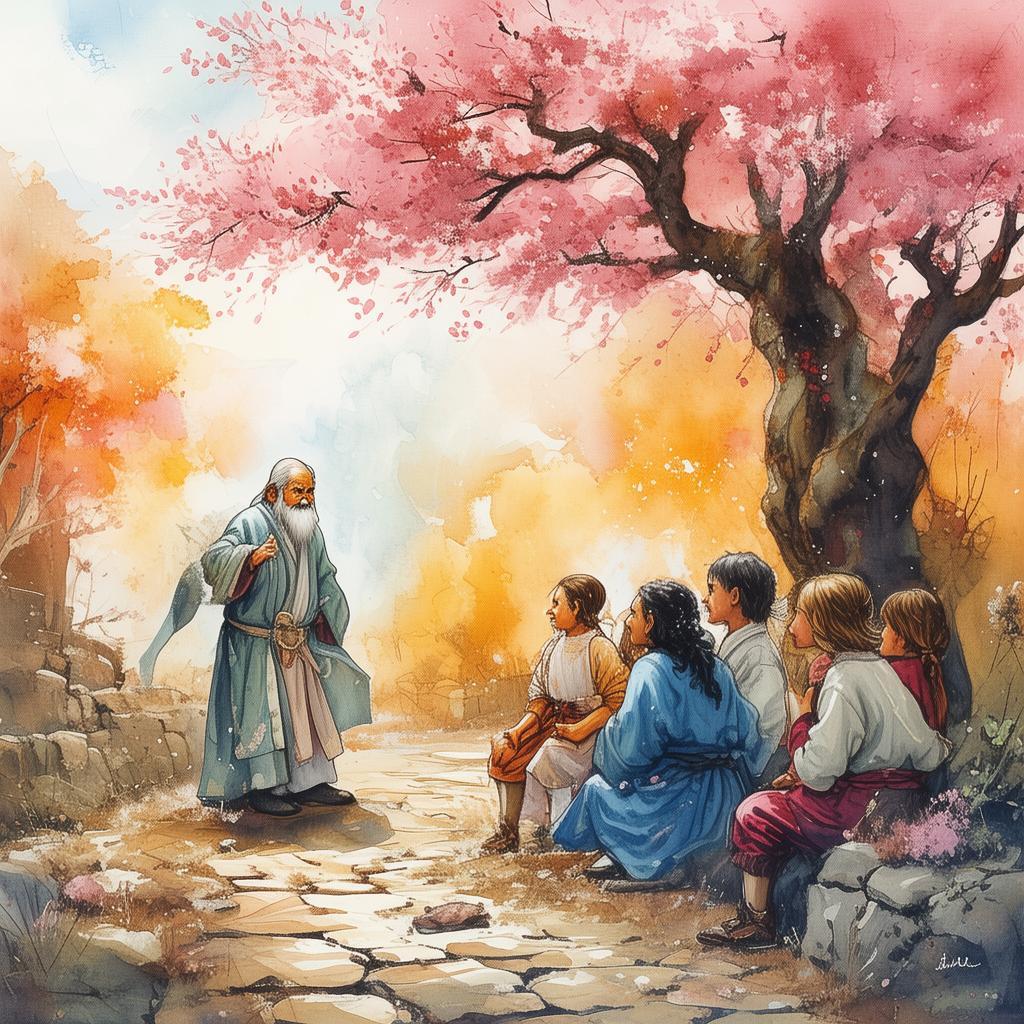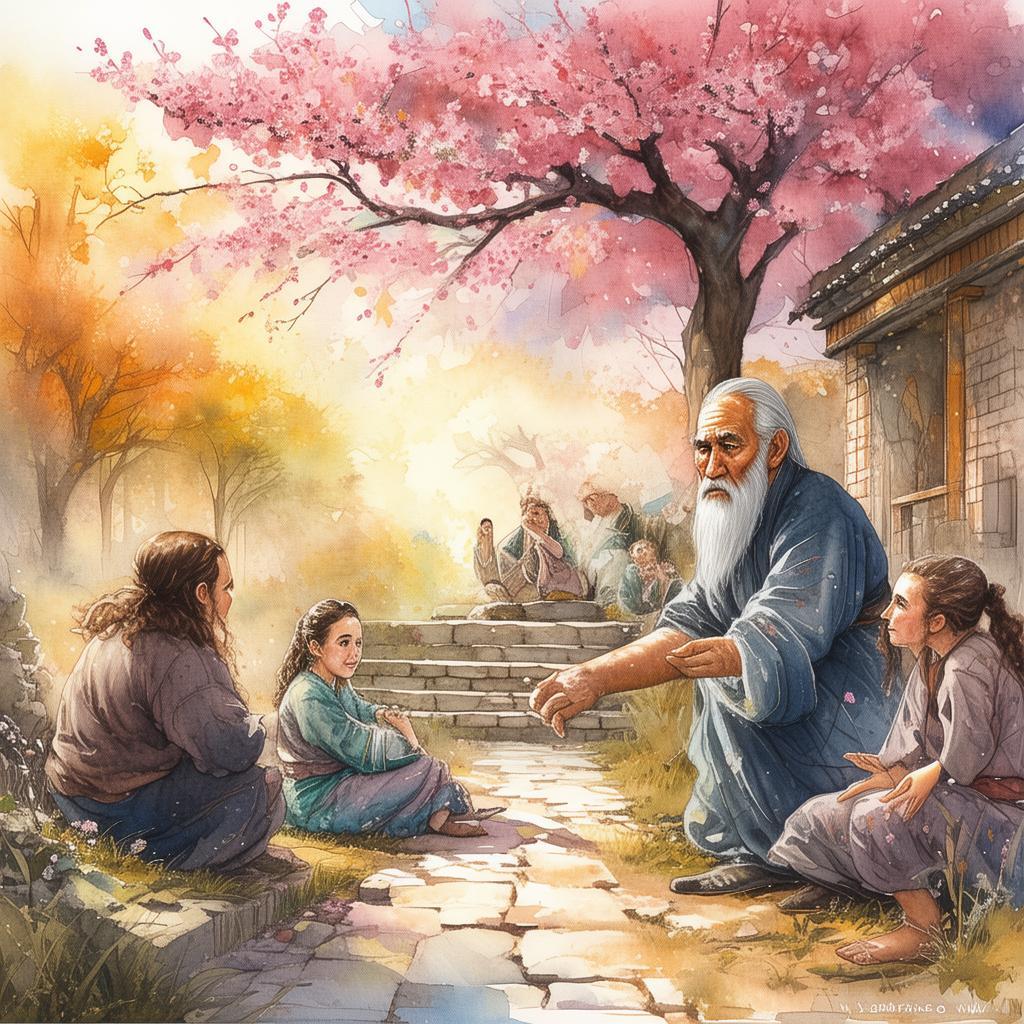Pen of Iron, Heart of Fire: The Tale of the Unyielding Scholar
In the bustling city of Chang'an during the Tang Dynasty, a young scholar named Liu Jing was known for his sharp wit and profound understanding of classical texts. His name was whispered in hushed tones, for he was not only a master of the written word but also a critic with a pen as sharp as iron. His critics spoke of his work with a mix of awe and trepidation, for Liu Jing's praise was like a warm sun, and his critique, a scorching fire.
The story of Liu Jing's rise to prominence began with his first major work, "The Critic's Ode," a poem that encapsulated his passion for literature and his belief in the transformative power of words. The ode was a masterful blend of praise and passion, celebrating the beauty of the written word while also acknowledging the flaws and limitations of even the greatest literary works.
As his reputation grew, Liu Jing became the central figure in a literary rivalry that swept through the city. His contemporaries, led by the charismatic and enigmatic poet Wang Qian, sought to outdo him with their own works. Wang Qian, with his flowing robes and poetic verses, was the embodiment of the romantic ideal, while Liu Jing was the unyielding critic, his words cutting through the fabric of literary pretense.
One day, Wang Qian challenged Liu Jing to a literary duel, a contest where each would present their best work, and the audience would decide the winner. The city buzzed with anticipation, for the stakes were high. Liu Jing, however, was not one to back down from a challenge. He accepted, knowing full well that the outcome would not only determine his place in the literary world but also test his own resolve.
The day of the duel arrived, and the great hall of the city's most prestigious academy was filled to the brim. Liu Jing stood before the crowd, his eyes gleaming with a fire that matched the passion in his heart. He recited his ode, his voice resonating with the power of his convictions. "In this world of ink and paper," he declared, "words are the greatest weapon and the most powerful ally."
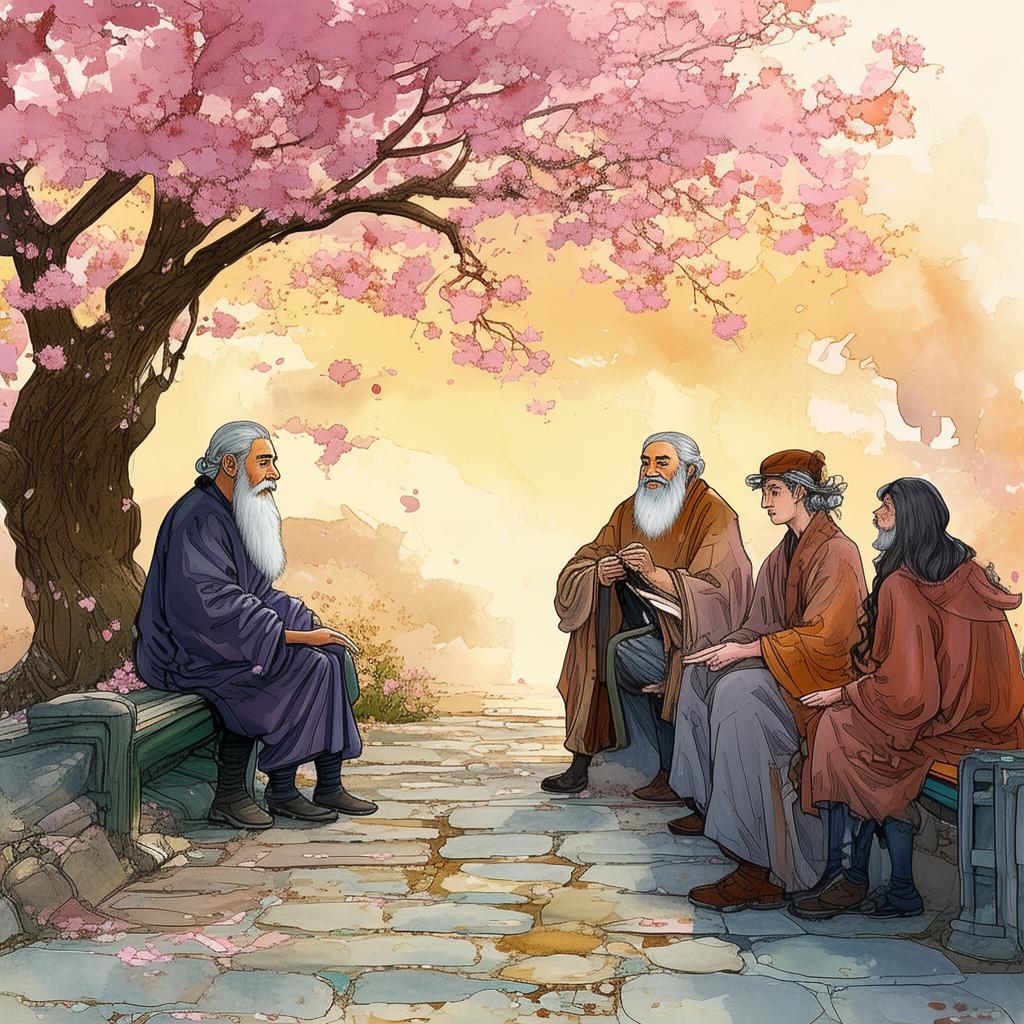
Wang Qian, in turn, recited his own work, a sonnet that was a masterful display of his poetic prowess. The crowd was captivated, their cheers and applause echoing through the hall. Yet, as the applause died down, Liu Jing's words lingered in the air, a testament to the depth of his understanding and the power of his passion.
The debate that followed was fierce. Liu Jing's critics accused him of being overly harsh, while Wang Qian's supporters praised him for his romanticism. The scholars argued back and forth, their words a storm of intellect and emotion. Yet, in the end, it was Liu Jing's dedication to the craft that won the day. His ode, with its blend of praise and passion, was a work that transcended mere rivalry, becoming a celebration of the literary spirit itself.
As the dust settled, Liu Jing found himself standing alone on stage, the winner of the duel. The crowd erupted into cheers, and the applause was thunderous. Yet, Liu Jing's heart was heavy. He realized that while he had won the duel, he had also lost something precious—the camaraderie that had once existed between him and Wang Qian.
In the days that followed, Liu Jing reflected on his victory. He realized that his passion for literature had led him to a place where he had become a critic, not just of others' works but of his own heart. He resolved to change, to find a balance between praise and critique, between passion and reason.
He began to write a new ode, one that would not only celebrate the beauty of literature but also acknowledge its flaws. He called it "The Scholar's Ode," and it was a work that would become his magnum opus. In it, he wrote, "In the garden of words, both the sun and the storm are necessary. Only in the embrace of both can true beauty bloom."
Liu Jing's journey from critic to scholar was a testament to the power of perseverance and the importance of balance. His story became a legend, a tale of a man who had found his voice and used it to not only judge but also to inspire. And in the end, it was his unwavering dedication to his craft that won him both praise and passion, for he had learned that the true strength of a scholar lies not in the words he writes but in the heart he dedicates to the pursuit of knowledge.
✨ Original Statement ✨
All articles published on this website (including but not limited to text, images, videos, and other content) are original or authorized for reposting and are protected by relevant laws. Without the explicit written permission of this website, no individual or organization may copy, modify, repost, or use the content for commercial purposes.
If you need to quote or cooperate, please contact this site for authorization. We reserve the right to pursue legal responsibility for any unauthorized use.
Hereby declared.
